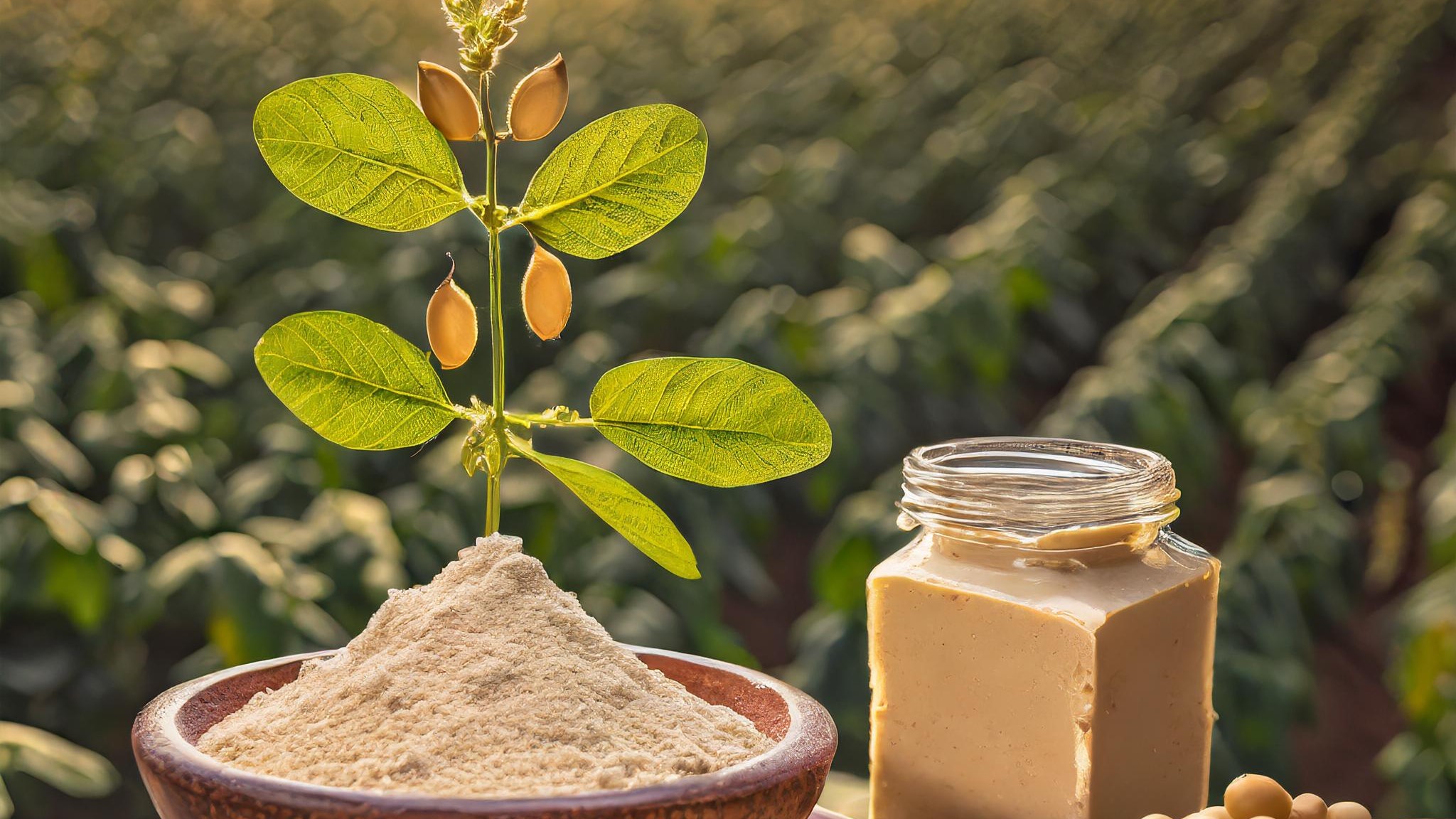Soybean (Glycine Max) is a very important source of protein and good fat, it is an important food crop in China, Japan, and Korea. It is also cultivated in India and throughout Southeast Asia.
History:-
From China soybean went to Europe in 1792 and to the United States in 1804, in the USA, more than 1000 types of soybean are grown essentially as an oilseed crop and the country stands first in the world, both in the area under cultivation and production soybean utilization for food in China, Japan, and other countries is high. In China, the average daily consumption of soybeans is 18gm per capita. In Japan, co-products of soybeans are mostly used.
Sustainable Protein:-
Soyabean, with its high protein content, could be a substitute for expensive meat products, as there is a worldwide shortage of affordable protein. It is reported that soybean has a hypoglycemic effect, hence it can be used by diabetic patients. Soybean is a nutritional powerhouse, packed with essential nutrients for overall health and well-being. They are an excellent source of complete protein, containing all nine essential amino the human body requires. Additionally, soybeans boast a high content of healthy fats, including omega-3 and omega-6 fatty acids, which support heart health and cognitive function. Rich in fiber, vitamins (such as folate and vitamin K), and minerals (including calcium, magnesium, and potassium), soybeans offer a comprehensive array of nutrients in every serving.

Coproduce of soybean:-
Soy Protein:
Soy protein is isolated from soybean meal and further processed into various forms such as soy protein concentrate and soy protein isolate. These products serve as plant-based alternatives to animal protein and find applications in food and beverage manufacturing. Soy protein is used to enhance the nutritional profile and functionality of products like meat analogs, protein bars, dairy alternatives, and nutritional supplements.
Soy Flour:
Soy flour is produced by grinding roasted or defatted soybeans into a fine powder. It is a nutritious ingredient in baking and food manufacturing, adding protein, fiber, and texture to products like bread, cookies, cakes, and pancakes. Soy flour is also used as a meat extender in processed foods and as a thickening agent in soups and sauces.

Soybean curd:
More commonly known as tofu, is a versatile and nutritious plant-based food made from soybeans. It's a staple ingredient in many cuisines around the world, particularly in East Asia, where it has been consumed for centuries. Tofu is valued for its mild flavor, smooth texture, and ability to absorb the flavors of other ingredients in dishes.
Soy milk:
A popular plant-based alternative to dairy milk made from soybeans. Soy milk is widely consumed by individuals seeking a lactose-free, vegan, or vegetarian option, as well as those with dairy allergies or intolerances.
Soybean paste:
Also known as soybean miso, it is a traditional Japanese condiment made from fermented soybeans, salt, and koji (a type of fungus). It's a staple ingredient in Japanese cuisine, prized for its rich umami flavor and versatile uses in cooking.
Tempe:
Is a traditional Indonesian fermented soy product that has gained popularity worldwide as a nutritious and versatile plant-based protein source. Made from whole soybeans that have been cooked, fermented, and compacted into a dense cake-like form, tempeh offers a unique texture and flavor profile that makes it a favorite among vegetarians, vegans, and those looking to incorporate more plant-based foods into their diets.
Natto:
It is a traditional Japanese fermented soybean dish that has been enjoyed for centuries for its unique flavor, texture, and nutritional benefits. While it's often considered an acquired taste due to its pungent aroma and slimy texture, natto has gained popularity both in Japan and internationally for its health-promoting properties.
Nutritional Composition:
Protein:
Soybeans are one of the few plant-based sources of complete protein, containing all the essential amino acids the human body requires.
Fats:
They are high in unsaturated fats, including omega-3 and omega-6 fatty acids, which are beneficial for heart health.
Carbohydrates:
Soybeans contain carbohydrates, including fiber, which aids in digestion and helps regulate blood sugar levels.
Vitamins and Minerals:
Soybeans are rich in various vitamins and minerals, including folate, vitamin K, potassium, phosphorus, and magnesium.
Health benefits:
Heart Health:
The unsaturated fats in soybeans can help lower LDL cholesterol levels, reducing the risk of heart disease.
Bone Health:
Soybeans are a good source of calcium and magnesium, essential minerals for maintaining bone health and preventing osteoporosis.
Cancer Prevention:
Some studies suggest that soy consumption may be associated with a reduced risk of certain cancers, including breast and prostate cancer, due to the presence of phytochemicals like isoflavones.
Menopausal Symptoms:
Soy isoflavones have been found to alleviate menopausal symptoms such as hot flashes and night sweats in some women.
Digestive Health:
The fiber content in soybeans supports digestive health by promoting regular bowel movements and preventing constipation.
Soybeans are considered a sustainable crop due to their ability to fix nitrogen in the soil, reducing the need for synthetic fertilizers. However, concerns about deforestation for soybean cultivation, particularly in regions like the Amazon rainforest, highlight the importance of sustainable farming practices.
Considerations:
Allergies: Soybeans are one of the top allergens, and some individuals may experience allergic reactions to soy or soy products.
GMOs: The majority of soybeans grown worldwide are genetically modified organisms (GMOs). While GMO soybeans have been deemed safe for consumption by regulatory agencies, some consumers prefer non-GMO varieties.
In conclusion, soybeans are a nutritious and versatile legume with numerous health benefits and culinary applications. However, it's essential to consider individual dietary preferences, allergies, and environmental concerns when incorporating soy products into one's diet.
